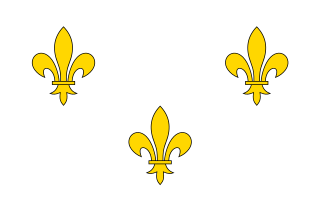Old
No participo als deportis, dicánt non.
[no paɾˈtit͡ʃipo͡als deˈpoɾtis diˈkant ˈnon]
New
Gzo nê participi allis spórtis, d'ô non.
[ˈdʑɔ nə patɪˈtɕeˈpe̯‿aːllɪ ˈspoɾtɪ ˈdoː ˈnõː]
I don't participate in sports, so no.
Old
Ela persona sevént mi hat trescorso uni soziorno in une mançón orie.
[ˈela peˈɾsona seˈvent mi atːɾesˈkoɾso ˈuni soˈzjoɾno in ˈune manˈt͡ʃon ˈoɾje]
New
La pessona chi me siév á songzornad an mesóni uói.
[la pəˈsɔːna kɪ mə ˈse̯aː ˈɛ sõʑɔˈnaːɾ‿õ məˈzoːnɪ ˈo̯ɑːe̯]
The person after me has stayed in a ritzy hotel.
Old
Si io ti respondeva ab une frazi corte, no parró estraér mie conlimue, dicánt ti volo a donár uni responso longo, volént dicér, supono, va oíc, no ti volo a respondre ab une frazi corte. Creí vinci paralis in escriviént celci!
[ˈsiːo ti responˈdevaːb ˈune ˈfɾazi ˈkoɾte no paˌro͡estɾaˈeɾ mje konˈlimwe diˈkantːi ˈvolo͡a doˈnaɾ ˈuni resˈponso ˈloŋgo voˈlent diˈt͡ʃeɾ suˈpono va͡oˈik no ti ˈvolo͡a resˈpondɾe͡ab ˈune ˈfɾazi ˈkoɾte kɾeˈi ˈvintʃi paˈɾalis in escɾiˈvjent ˈt͡ʃelt͡ʃi]
New
Sì gzo te ripondevi con ne córt frás, gzo nê podrè demaressê le mi conlénv, e por quelli gzo te beglarò ne long ripons, volént dî, gzo supondi, ca oi, gzo nê te ripondrò con ne córt frás. Gzo ò cread chingi paráblis en crivént quelli !
[se ˈdʑɔ tə rɪpõˈdɛːvɪ kõː nə kʊ ˈfɾɛ ˈdʑɔ nə pɔˈdɾɛ dəmaɾəˈsɛː lə ˈme kõˈlẽː ɛ pɔ ˈko̯ɛːllɪ ˈdʑɔ tə bəɪ̯aˈɾɔ nə ˈlõː rɪˈpõ vɔˈlẽ ˈdeː ˈdʑɔ sʊˈpõːdɪ ka ˈo̯ɛ ˈdʑɔ nə tə rɪpõˈdɾɔ kõ nə kʊ ˈfɾɛ | dʑɔ ˈɔ kɾəˈaː ˈkẽːʑɪ paˈɾɛːblɪ ã kɾɪˈvẽ ˈko̯ɛːllɪ]
If I responded to you with a short sentence, I wouldn’t be able to develop my conlang, so I will give you a long response, meaning, I suppose, that yes, I won’t respond to you with a short sentence. I created fifteen words writing this!










